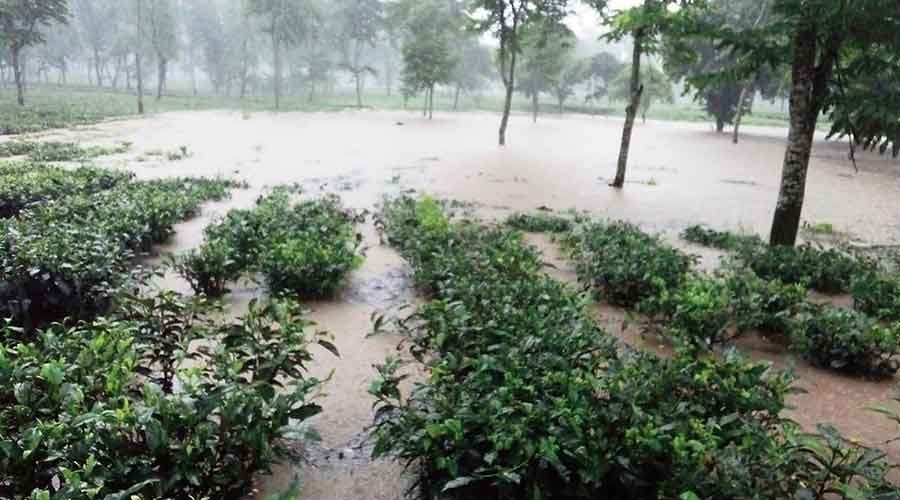Heavy monsoon in north Bengal has hit the tea belt hard, representatives of tea planters’ association said on Wednesday.
“The unremitting rainfall in the region has affected production in almost all tea gardens in the Dooars (Jalpaiguri and Alipurduar districts). Most rivers, rivulets and streams which flow through or skirt the tea estates have affected the gardens,” said Sanjay Bagchi, the secretary of the Dooars Branch of Indian Tea Association (DBITA).
He said that almost all the 250-odd tea gardens had received 250mm to 350mm of rainfall these past few days, flooding the plantations, workers’ quarters, among other areas, and hindering the growth of tea leaves.
“Workers’ quarters were affected, roads connecting the gardens to the outside world and roads within the gardens got inundated,” added Bagchi.
Inclement weather also led to a rise in absenteeism among workers in many tea gardens, planters said.
“As a result, fewer leaves are being plucked nowadays. The gardens have already borne losses because of the lockdown and operational curbs, and now rainfall has added to their problems,” said Sumit Ghosh, secretary of the Terai branch of Tea Association of India.
Tea estates are facing frequent power cuts during heavy rain, planters added.
According to sources in the DBITA, in gardens such as Telepara, Binaguri, Anandapur, Diana, Gandrapara, Lakhipara, Gairkata, Rheabari, Washabarie, Damdim, Oodlabari, Baintgoorie, Kailashpur and Central Dooars, plantations have been washed away or have been flooded.
“We are waiting for the weather to improve,” Bagchi said.
Rise in water levels made the state irrigation department announce a red (secondary) alert in unprotected areas on both banks of the Teesta. A yellow (primary) alert has been announced on both banks of the Jaldhaka river.











